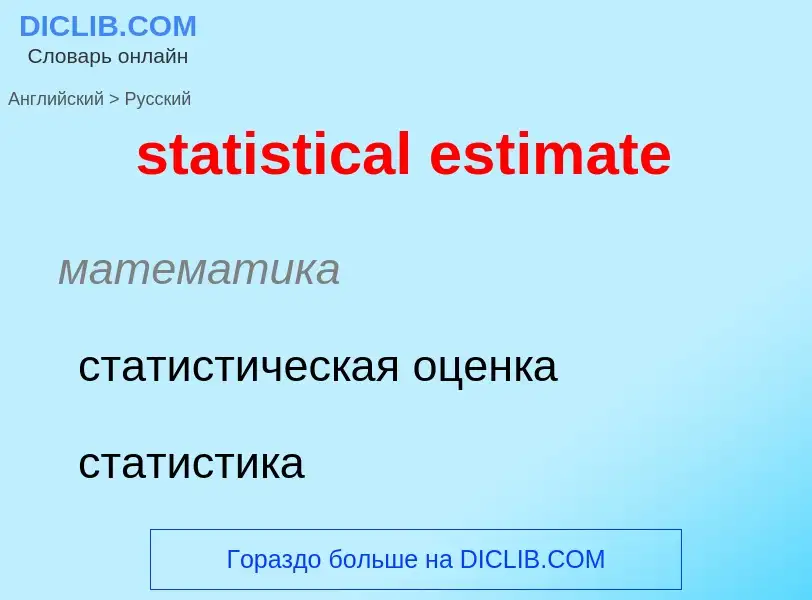Traduction et analyse de mots par intelligence artificielle ChatGPT
Sur cette page, vous pouvez obtenir une analyse détaillée d'un mot ou d'une phrase, réalisée à l'aide de la meilleure technologie d'intelligence artificielle à ce jour:
- comment le mot est utilisé
- fréquence d'utilisation
- il est utilisé plus souvent dans le discours oral ou écrit
- options de traduction de mots
- exemples d'utilisation (plusieurs phrases avec traduction)
- étymologie
statistical estimate - traduction vers russe
математика
статистическая оценка
статистика
2) оценщик
['estimeitə]
общая лексика
(статистическая) оценка
формула оценки
лицо
производящее оценку
оценка
оценочная функция
сметчик
статистика используемая в качестве оценки
таксатор
существительное
общая лексика
оценщик
эксперт по оценке
сметчик
таксатор
математика
оценка
оценочная функция
Wikipédia
In statistics, an estimator is a rule for calculating an estimate of a given quantity based on observed data: thus the rule (the estimator), the quantity of interest (the estimand) and its result (the estimate) are distinguished. For example, the sample mean is a commonly used estimator of the population mean.
There are point and interval estimators. The point estimators yield single-valued results. This is in contrast to an interval estimator, where the result would be a range of plausible values. "Single value" does not necessarily mean "single number", but includes vector valued or function valued estimators.
Estimation theory is concerned with the properties of estimators; that is, with defining properties that can be used to compare different estimators (different rules for creating estimates) for the same quantity, based on the same data. Such properties can be used to determine the best rules to use under given circumstances. However, in robust statistics, statistical theory goes on to consider the balance between having good properties, if tightly defined assumptions hold, and having less good properties that hold under wider conditions.




